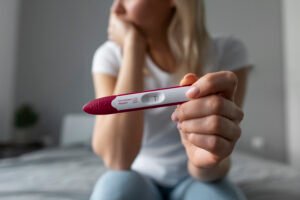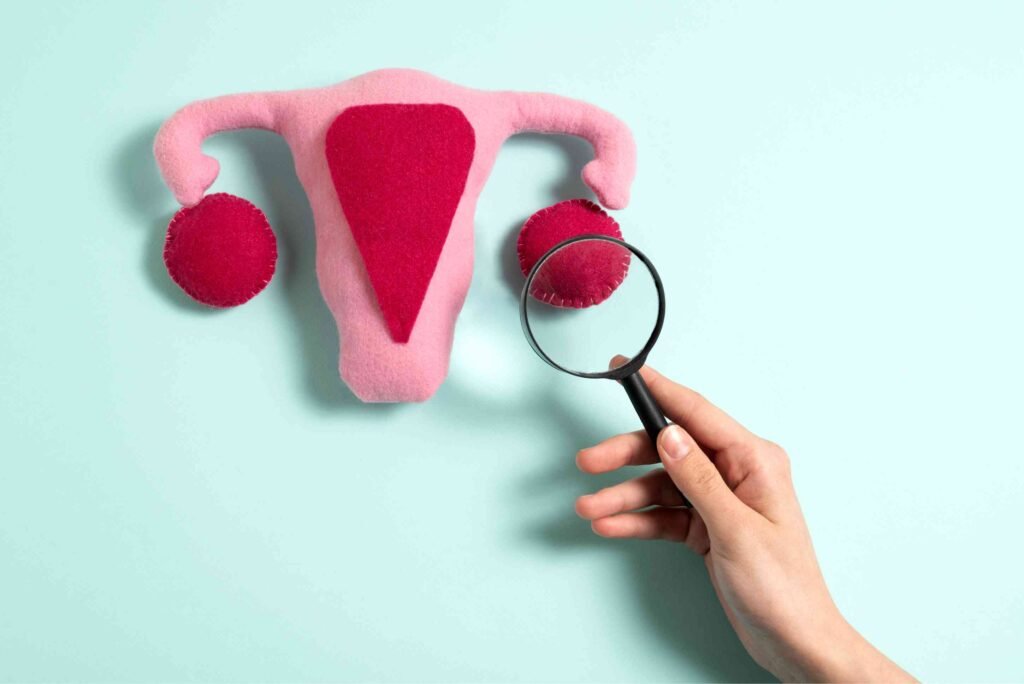Understanding LUF Syndrome & Its Impact on Fertility
When it comes to fertility challenges, there are numerous conditions that can influence a couple’s journey toward parenthood. One lesser-known yet significant condition is LUF Syndrome (Luteinized Unruptured Follicle Syndrome). While it might not be as commonly discussed as PCOS or endometriosis, LUF Syndrome can be a critical factor in unexplained infertility cases. In this blog, we’ll delve into what LUF Syndrome is, how it impacts fertility, and what you can do if you suspect it’s affecting your chances of conceiving.
What is LUF Syndrome?
LUF Syndrome stands for Luteinized Unruptured Follicle Syndrome, a condition where the ovarian follicle matures and luteinizes (turns into a corpus luteum) without actually releasing an egg during ovulation. Essentially, the body goes through all the motions of ovulation—hormonal surges, follicular development, and luteinization—but the key event, the release of the egg, doesn’t occur.
This absence of egg release means that fertilization cannot take place, even if everything else in the reproductive process appears normal. LUF Syndrome is often tricky to diagnose, as many women may still experience regular menstrual cycles and show no obvious symptoms of anovulation.

Symptoms of LUF Syndrome
LUF Syndrome is often called a “silent” condition because it doesn’t always present with noticeable symptoms. However, there are a few potential signs that might point toward this condition:
1. Irregular Fertility Patterns:
If you’ve been trying to conceive for over a year without success and other causes of infertility have been ruled out, LUF Syndrome might be worth investigating.
2. Ovulation Symptoms Without Results:
Women may experience common ovulation symptoms, such as mild cramping or cervical mucus changes, but still fail to conceive.
3. Hormonal Indicators:
Blood tests might show normal levels of hormones like LH and FSH, masking the underlying issue.
It’s important to note that the condition can only be confirmed through specialized diagnostic procedures like ultrasound or laparoscopy.
How Does LUF Syndrome Affect Fertility?
Fertility relies on the successful release of a mature egg from the ovary during ovulation, followed by its journey through the fallopian tube to meet the sperm. LUF Syndrome disrupts this process by creating a scenario where the egg remains trapped inside the follicle, rendering fertilization impossible.
Even if all other aspects of reproductive health are functioning correctly, the lack of an egg for fertilization makes conception unattainable. In many cases, couples struggling with unexplained infertility might unknowingly be dealing with LUF Syndrome.

Causes of LUF Syndrome
The exact cause of LUF Syndrome isn’t fully understood, but researchers have identified several potential factors:
1. Hormonal Imbalances:
Inadequate or mistimed hormonal surges (particularly luteinizing hormone, or LH) can prevent the follicle from rupturing.
2. Endometriosis:
This condition is frequently associated with LUF Syndrome due to its impact on ovarian function.
3. Stress and Lifestyle Factors:
Chronic stress or an unhealthy lifestyle can interfere with hormonal signals and ovulation.

4. Medications:
Certain medications, particularly those affecting hormones, may inadvertently contribute to LUF Syndrome.
Diagnosing LUF Syndrome
Diagnosing LUF Syndrome can be challenging because standard ovulation tracking methods, such as basal body temperature (BBT) charting or ovulation predictor kits (OPKs), might indicate ovulation even when no egg has been released. This is why specialized diagnostic tools are required:
- Ultrasound Monitoring: Multiple ultrasounds during the ovulation phase can reveal whether the follicle has ruptured or not.
- Laparoscopy: This minimally invasive procedure allows doctors to directly observe the ovaries and confirm whether ovulation has occurred.
- Blood Tests: Hormonal tests may also be performed to rule out other causes of ovulatory dysfunction.

Treatment Options for LUF Syndrome
The good news is that LUF Syndrome is treatable, and many women go on to conceive successfully after addressing the condition. Here are some common approaches:
- Ovulation Induction Medications: Drugs like clomiphene citrate or letrozole can stimulate the ovaries to ensure proper egg release.
- Trigger Shots: An hCG injection (trigger shot) can be used to mimic the natural LH surge and encourage follicular rupture.
- Surgical Interventions: In rare cases, surgery may be recommended to correct anatomical or functional issues affecting ovulation.
- Lifestyle Modifications: Addressing stress, improving diet, and incorporating exercise can support hormonal balance and ovulation.

Coping with the Syndrome: Emotional and Physical Support
Dealing with any fertility challenge can be emotionally taxing, and LUF Syndrome is no exception. Here are some tips to navigate the journey:
- Educate Yourself: Knowledge is power. Understanding the condition and your treatment options can help alleviate anxiety.
- Build a Support Network: Join fertility support groups or talk to loved ones who can provide emotional encouragement.
- Focus on Self-Care: Prioritize mental and physical health through mindfulness, yoga, or therapy.
- Be Patient: Fertility treatments often require time and adjustments. Trust the process and stay hopeful.

Final Thoughts:
LUF Syndrome is a complex yet manageable condition that can have a significant impact on fertility. While its silent nature makes it difficult to detect, awareness and early intervention can make all the difference. If you suspect the syndrome is affecting your ability to conceive, consult with a fertility specialist to explore diagnostic options and tailored treatment plans.
Infertility can be an emotional rollercoaster, but understanding conditions like LUF Syndrome brings us closer to solutions. With the right support and guidance, overcoming this challenge is entirely possible.


